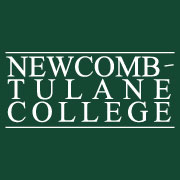After serving eight years as President, Obama was no longer eligible for office and in 2016 Hillary Clinton, former secretary of state, ran as a Democrat to fill his office. Opposing her was Donald Trump, a wealthy American celebrity, and businessman. Trump was seen, as an outsider who was sure to lose against the experienced, established candidate Hillary Clinton. Hillary Clinton had always taken a similar approach to Obama in opposing Putin and Russian ambitions. Unpopular with Russia, her election would have been a worst-case scenario for Putin’s government. The 2016 election was well underway when on July 22nd, 2016 WikiLeaks published a series of leaked emails hurting Hillary and the DNC’s public image Online news sources that often published pro-Russian material began to attack Hillary Clinton and her campaign, publishing FAKE NEWS articles that were misleading and untrue. In an unpredicted political upset, Donald Trump ended up winning the election and became the 45th President of the United States. The FBI and CIA both concluded that Russia had attempted to influence the U.S election to prevent Hillary Clinton from becoming President. Obama, still President, responded to this by ejecting 35 suspected Russian intelligence operatives from the United States and imposed sanctions on Russia’s two leading intelligence services. Although President Trump denies that Russia had any impact on the election, it is clear that there was an attempt to influence our Democratic process.
The project focused on the research question, did Russian interference in the United States 2016 Presidential election influence the election in favor of Donald Trump? The data from the survey I created proved the initial part of my hypothesis. The study showed that 31.02% of subject’s opinions of Hillary Clinton decreased as a result of reading the fake news article shows that the fake news articles widely fabricated by Russia can influence voters who participated in the 2016 election. The pro-Hillary and neutral article both had a decreasing effect on the opinion of less than 14%. That almost a third of the people that read the article had a decreased opinion of Hillary Clinton means there is an opinion decreasing effect from reading the fake news article that is significantly larger than reading either a pro or neutral article. Additionally, the data disproves the second part of my hypothesis, that Republicans are more susceptible to fake news articles. Republicans seem no more likely than any other group to have a changed opinion of Hillary Clinton’s fitness for the presidency after reading a fake news article than any other demographic.
As with any experiment, there is always the potential for error. There may have been too many Democrats and not enough Republicans who participated in the survey to determine if Republican’s were more likely to change their opinions due to fake new articles. Additionally, there is the potential for human error. Some of the surveys were not filled out completely, and those results were discarded. Also, there were more subjects who read article one than in the other two groups, although only by a maximum difference of 2 subjects. There is also the possibility that a person could have lied on their survey. There is also the possibility that people might not have fully read the articles.
The next steps in this project would be to collect a larger sample size. It is important for further work to ensure that half the subjects are Republicans and half Democrats and then divide them into three groups each with a different fake news article. This would reaffirm that fake news has an impact on voter opinion and allow further research into how party identification affects subject’s susceptibility to opinion change from fake news. In using three different articles, the experiment removes the possibility that voter opinion was only changed by the one fake news article used in the experiment.
The project found that fake news articles do have an effect on voter opinion and that voters from both political parties are equally susceptible. Newcomb-Tulane College was kind enough to donate a $1,000 grant towards the research in this project, without that grant this project would not have been possible. I would like to formally thank them for such a generous amount of faith in both myself and my thesis. Future work could be done with a larger and more evenly split partisan subject body. The fake news has an impact on some voters’ opinion. Russian fake news articles are capable of causing a decreased opinion of Hillary Clinton despite the fact that the content of the article is false. There is no doubt that some voters during the U.S. 2016 Presidential Election were vulnerable to changing their opinion as a result of the fake news articles widely spread by Russia. The truth always seems to come out in the end.
Link to the Survey:
tulane.co1.qualtrics.com/jfe5/preview/SV_9AysZkzvXcJjrKd?Q_CHL=preview
Written by Joel Zeid, Ching Grant recipient, 2017
